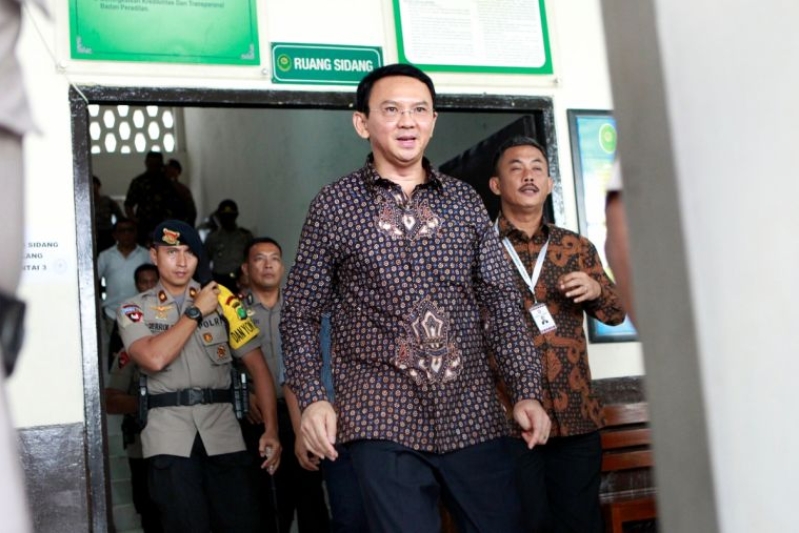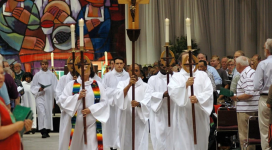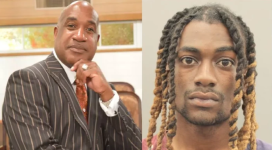
In what is being called a "sad day for Indonesia", the Christian governor of Jakarta, Basuki Tjahaja Purnama - better known by his nickname Ahok, has been sentenced to two years in prison by a court that found him guilty of blaspheming the Quran.
In announcing its decision on Tuesday, the five-judge panel said Ahok was "convincingly proven guilty of blasphemy" and ordered his arrest, according to reports. Head judge Dwiarso Budi Santiarto told the court Ahok was "found to have legitimately and convincingly conducted a criminal act of blasphemy, and because of that we have imposed two years of imprisonment".
Ahok was then taken to Cipinang Prison in east Jakarta, local media reported. He said he would immediately appeal the court's decision.
Andreas Harsono, an Indonesia researcher at Human Rights Watch, told the Guardian the surprise verdict was "a sad day for Indonesia".
"Ahok's is the biggest blasphemy case in the history of Indonesia," he said. "He is the governor of Indonesia's largest city, an ally of the president. If he can be sent to jail, what could happen to others?"
As reported, Ahok, who is is ethnic Chinese and the first Christian in nearly 50 years to govern Indonesia's capital, was found guilty of violating Indonesia's blasphemy laws during a speech to fishermen in September.
In that address, he reportedly cited a verse from the Quran that warns Muslims against taking Christians and Jews as allies. At the time, he quipped that due to Indonesia's transition to democracy in 1999, it was perfectly acceptable for Muslim voters to choose a Christian in the election for governor in February.
Ahok continually denied the charges, and said his comments were aimed at politicians "incorrectly" using the Koranic verse against him, as reported by The Gospel Herald, and insisted his alleged remarks were not directed at the verse itself. Nevertheless, the trial drew hundreds of thousands to anti-Ahok protests across Jakarta, with hardline Muslim groups demanding that he resign.
The prosecution says he insulted Islam by misusing the verse to boost public support ahead of the governorship election, according to the BBC. However, supporters said the trial was a plot to keep the governor from being elected to the office, which he inherited when his predecessor won the presidency in 2014. Others say that his comments were exploited in an effort to incite ethnic and religious hatred against Ahok.
The Washington Post notes that the blasphemy case was indeed a "decisive factor" in Ahok's defeat to a Muslim candidate in last month's election.
"Hard-liners will feel emboldened by the ruling, given that the trial represents a wider tussle between pluralism and Islamism in Indonesia," said Hugo Brennan, an analyst at Verisk Maplecroft, a political risk assessment firm in Singapore.
Blasphemy charges in Indonesia nearly always result in conviction, as earlier noted. The law has been criticized by Amnesty International for hurting freedom of expression and for targeting religious minorities.
Indonesia the most populous Muslim country in the world, with Christians representing less than 10 percent of population. Indonesia's government has been widely criticized for not doing enough to protect religious minorities, but President Joko Widodo, a key ally of Ahok, urged restraint over the trial and called for all sides to respect the legal process, notes ABC News.







